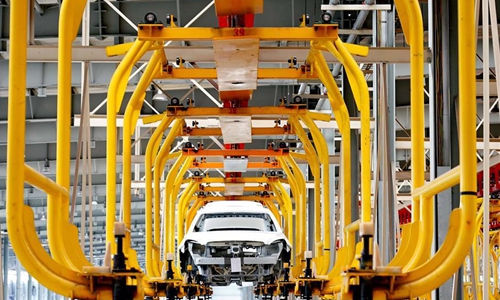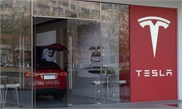SOURCE / INDUSTRIES
NEV sales slide slows in April, but technological barriers persist: analysts

File photo: A production line is seen at a subsidiary of Beijing Electric Vehicle Co., Ltd., a new energy vehicle producer, in Cangzhou, Hebei province, on July 6, 2019. (Photo/Xinhua)
Retail sales of new-energy vehicles (NEV) in China slumped 30 percent year-on-year in April, a much sharper decline than for overall vehicles, indicating serious bottlenecks in the NEV industry despite a seemingly active market in recent years, experts said.
Total passenger vehicle sales slumped 5.6 percent to about 1.43 million in April, the China Passenger Car Association (CPCA) said on Monday.
The association said that NEV sales totaled 64,000 in April. Sales of plug-in hybrid electric vehicles fell 14 percent year-on-year to 21,500, while sales of pure electric cars slumped 36 percent to 42,300.
Compared with a 49.2-percent slump in March, the NEV sales decline narrowed in April, showing that pressure on the sector, largely as a result of the coronavirus epidemic, had eased.
But the sector's recovery has been much slower and weaker than that of the general car market, as the CPCA data showed.
This is partly due to the fact that China's NEV market is full of speculative companies that are leaving the sector as the government cuts subsidies, Jia Xinguang, a car analyst, told the Global Times.
NEVs also have many "shortcomings", he said.
"For example, NEV makers, most of which don't produce electric batteries themselves, can't equip their cars with batteries that are both cheap and can support long-range driving, which makes them less attractive to consumers than traditional internal combustion cars," Jia said.
The shortage of neighborhood charging centers also made consumers hesitant to buy electric cars, Jia said.
He predicted that NEV sales may fall about 30 percent in 2020, while overall vehicle sales may fall 8-10 percent.
Global Times

